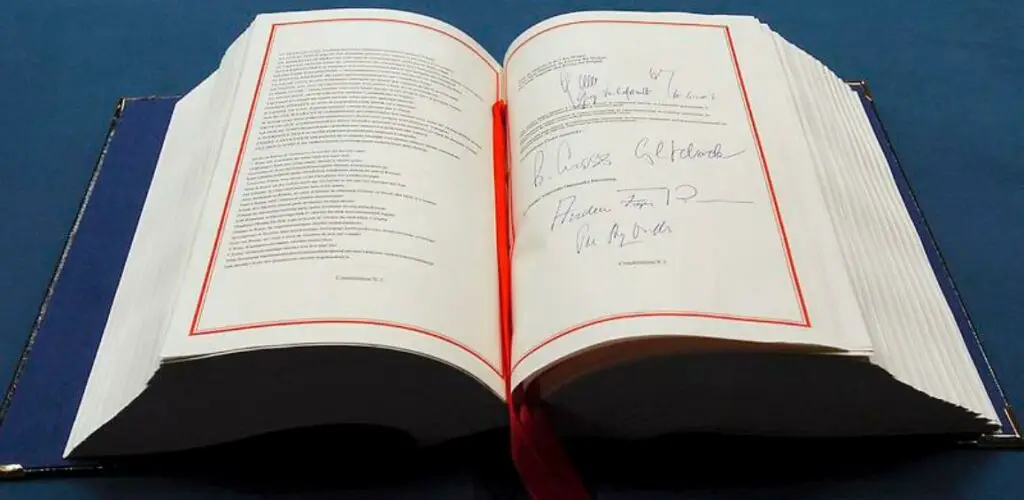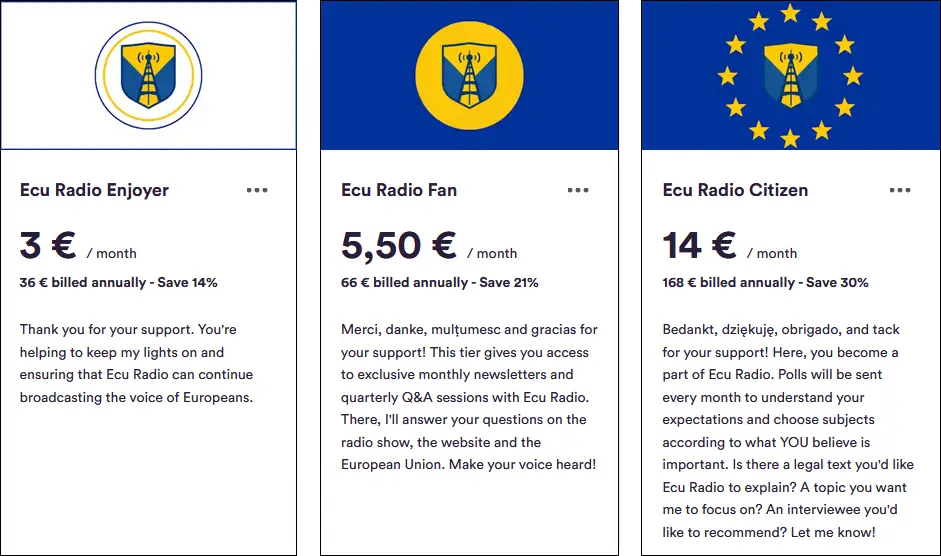The Charter of Fundamental Rights of the European Union

To understand the rights of European Union citizens, there is a concise document proclaimed in late 2000 called the Charter of Fundamental Rights[1]. This 14-page text (a triumph of brevity by EU standards) encapsulates what the EU stands for. To be applied when EU law is being implemented, binding its institutions and member states, it defines what all European citizens deserve and must strive to enforce in their daily lives.
These rights are, following the Four Freedoms, a significant appeal of the continent. The European Economic Community was founded on the promise of peace and prosperity, with trade as its cornerstone. It was a logical continuation of the European Coal and Steel Community. However, trade and resource pooling can only go so far. To ensure lasting peace and prosperity, the founders realized they needed to enshrine the concept of an “ever closer union” from the outset. This is the first line of the Treaty of Rome[2], quickly followed by the decision to ensure economic and social progress for its signatory members.
In other words, prosperity and peace can only be achieved through the elimination of restrictions and the enforcement of rights. The writers of the Charter remind us of this:
“The peoples of Europe, in creating an ever closer union among them, are resolved to share a peaceful future based on common values. Conscious of its spiritual and moral heritage, the Union is founded on the indivisible, universal values of human dignity, freedom, equality and solidarity; it is based on the principles of democracy and the rule of law. It places the individual at the heart of its activities, by establishing the citizenship of the Union and by creating an area of freedom, security and justice.”
To this end, they saw it as necessary to strengthen the protection of fundamental rights. But what are these rights exactly? What do you deserve but shouldn’t take for granted?
Let’s take a look.
Chapter 1: Dignity
Composed of five articles, this chapter enforces the rights to human dignity, defined as inviolable; to life, assuring that the death penalty is a violation of this right; to physical and mental integrity; against torture, inhuman or degrading treatment; and against forced labor or slavery.
Why we should not take Dignity Rights for granted
This chapter teaches us not to dehumanize others, regardless of our grievances. Once a government is granted the power to execute its citizens, disrespect integrity in the name of security, or enforce forced labor, people lose their rights and risk subjugation to degrading treatments. Countries where these rights are in flux or non-existent are most likely to succumb to authoritarianism, as unfortunately proved on the American and Asian continents.
Chapter 2: Freedoms
The longest chapter, along with Solidarity, it outlines all the freedoms everyone deserves and must fully utilize as citizens: liberty and security; private and family life; personal data protection; the rights to marry and found a family; thought, conscience, and religion; expression and information; assembly and association; arts and sciences; education; employment; conduct business; property; asylum; and protection against removal, expulsion, or extradition.
Why we should not take Freedoms for granted
Considering that one person’s freedom ends where another’s begins, the key word in this chapter is “everyone,” repeated 11 times. Freedoms are vital for citizens to live the lives they want, unburdened and unrestricted. They must apply to all, regardless of gender, sexual orientation, religion, beliefs, ideas, and ambitions. If these freedoms are restricted in order to stop a category of persons from enjoying them, they can only fall apart, as the censors move to their next target
Unfortunately, it is easy for those who foster hatred or supremacism to make people lose sight of the meaning of “everyone.” As we witness the rise of parties intent on treating people unequally, citizens must remember that if one part of society loses their freedoms, everyone does.
Chapter 3: Equality
A natural continuation of the Freedoms chapter, this chapter ensures that no one should be discriminated against based on gender, age, color, ethnic or social origin, genetic features, language, religion, or belief.
Why we should not take Equality for granted
Human beings are wired to view people sent as different as either dangerous or beneath them. This knee-jerk reaction is easy to exploit. By dividing citizens, their attention is diverted from enforcing their rights, and they may even applaud when those rights are taken away. Leveraging alleged problems with equality can give weapons to those who hate, leading to the loss of not only equality but also freedoms, dignity, and other rights.
Regretably, EU Institutions, universities, companies and other bodies are regularly targetted in attempts to foster division, often under the guise of unlocking funds and contract. Such blatant corruption must always be disregarded and those who try must be blacklisted.
Chapter 4: Solidarity
This chapter initially focuses on workers’ rights to information, collective bargaining, fair and just working conditions, and protection against unjustified dismissal. It then addresses legal, economic, and social protection, social security and assistance, healthcare, environmental protection, and consumer protection.
Why we should not take Solidarity for granted
The purpose of this chapter is not to criticize capitalism but to ensure its worst aspects are mitigated. As seen in the United States, hyper-capitalism often, if not always, prioritizes corporate interests over workers’ rights. Unions, protection against dismissals, safety nets, healthcare, and environmental protection cant be sacrificed for profit maximization. Amazon’s union-busting practices or “Attrition Goals,” where a quota of workers must be fired to ensure compliance, exemplifies this unhealthy pursuit[3].
True to the charter, Amazon is now under scrutiny by the European Parliament for its attacks on workers’ rights and freedoms of assembly and association[4]. It is a necessary, endless fight. If European citizens view solidarity as hindering companies’ growth and job creation, or if the Parliament becomes willing to repeal protective acts, trust and solidarity will crumble.
Chapter 5: Citizens' Rights
Focusing on democracy, the Charter enshrines the rights to vote, fair and impartial administration, access to institutional documents, petition, and free movement within the territory of the Member States.
Why we should not take Citizens' Rights for granted
Democracy can easily be overturned if citizens grow complacent. Many believe that voting is useless, that all representatives are corrupt, and that nothing is done to improve their lives. However, every Union citizen has the right to make their voice heard, stand as a candidate in elections, complain freely, and ensure future policies consider their opinions. Neglecting citizens’ rights means letting others choose your fate.
Chapter 6: Justice
The final chapter focuses on the right to defense, fair trials, and the presumption of innocence.
Why we should not take Justice for granted
A lack of justice or disregard for it gradually erodes societal trust, as citizens lose faith in institutions meant to protect them. This fuels inequality, allowing the powerful to exploit the vulnerable without consequence. Abuse of power becomes rampant, with no checks to ensure fairness or accountability. Social instability grows as people feel unheard and unprotected, leading to unrest and conflict. Over time, this environment can foster authoritarianism, where those in power consolidate control, further undermining individual rights and freedoms. Ultimately, the fabric of society weakens, making it difficult to maintain peace and prosperity.
Other Chapters
This chapter does not mention rights per se, but provides general provisions governing the interpretation and application of the Charter.
On that note, Article 52 reminds us that while the Charter of Fundamental Rights stands at as a distinct legal instrument, its roots can be found in the Convention for the Protection of Human Rights and Fundamental Freedoms[5], drafted as early as 1950 by the newly formed Council of Europe to protect human rights and prevent a return to the atrocities of World War II, establishing a common standard and a court to enforce it. Many of the rights enshrined in the Charter correspond directly to those protected under the Convention but are not limited to: “This provision shall not prevent Union law providing more extensive protection”.
Ecu Radio's Stance
Ecu Radio is standing for all fundamental rights, with no exception. Take a single away and the entire edifice crumbles. Onl through their continuous enforcement can we preserve them.
Ecu Radio needs your support
Ecu Radio is an independent news website and podcast show, run full-time by a single dedicated contributor (for now). Support our work and help keep us going, starting from only 3€ per month. Let's unleash Europe's potential together!
Click here to support Ecu Radio

